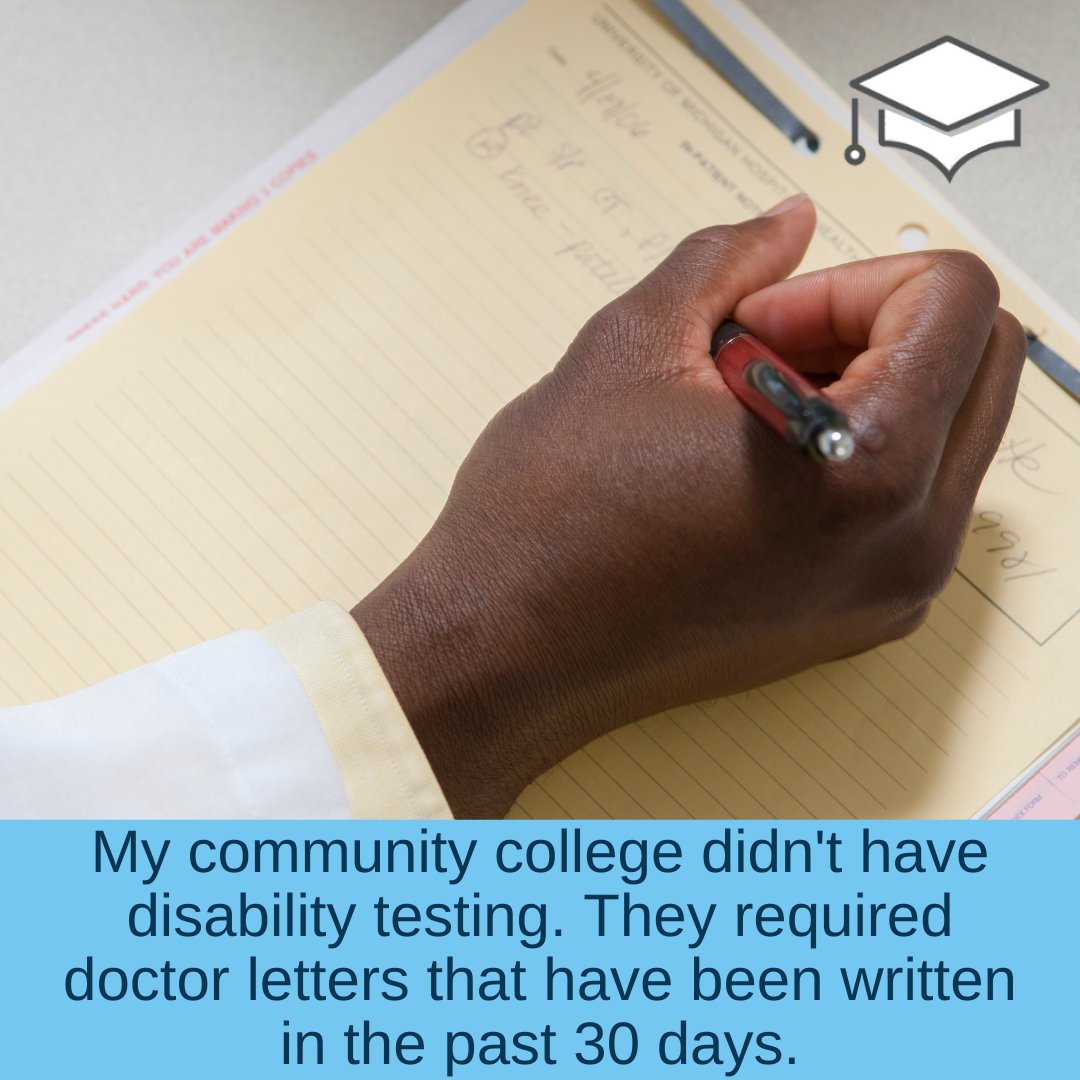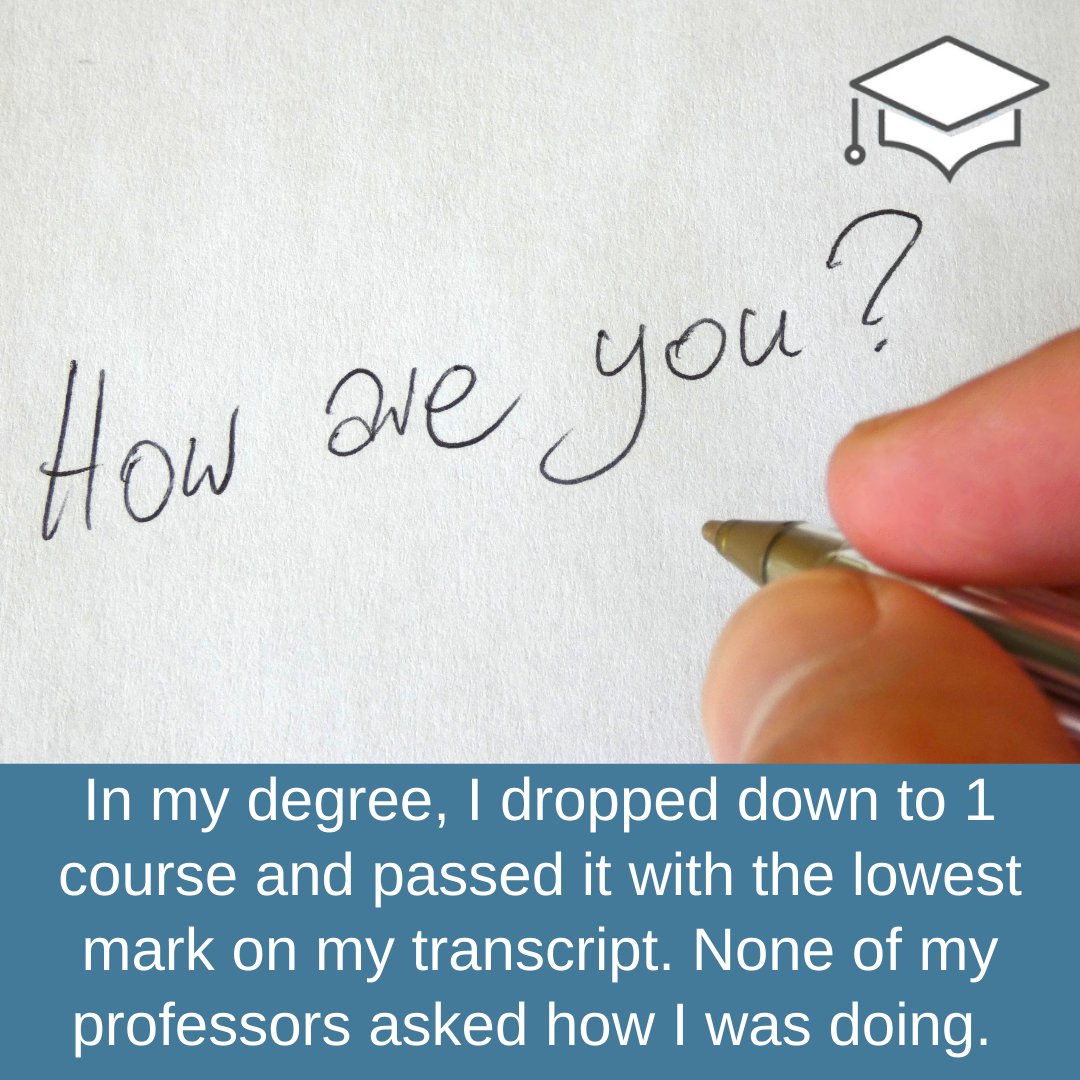
1/ CW: Mental illness + depression
Thread: This is my story about my hospitalization and recovery Fall semester of my Senior year October 2018: I had to put my life on hold, and I could no longer hide my struggles with mental illness anymore.
Thread: This is my story about my hospitalization and recovery Fall semester of my Senior year October 2018: I had to put my life on hold, and I could no longer hide my struggles with mental illness anymore.
2/ One thing I wish I learned earlier before recovery was that the system is the system was not built for folks that struggle with mental health + mental illness. I spent so much energy trying to fight it – a lot of it was due to internalized ableism.
3/ Hospitalization opened my eyes – I was going down a path overworking and perfection that was not sustainable and lead me to destruction. That week, I slowly transitioned from denial and self-hatred to acceptance of my conditions.
4/ To my parents’ suggestion: I attempted to go back to school for two weeks + I continued to spiral downward. It took my psychiatrist telling my parents that me staying in school would bring me back to square one for me to finally withdraw.
5/ Even though I wanted to withdraw, in doing so I felt like a failure. I felt like a failure because I thought I couldn’t handle being in a meteorology program, that I was not good enough, I thought ‘maybe I don’t belong here [in meteorology and higher education].’
6/ But looking back, I now see that while I did make choices in my mental health journey that were destructive, academia does not support and continues to fail students with mental illnesses and disabilities. Period.
7/ I withdrew from school ~2/3 through my Fall semester and with the privilege of my parents’ (specifically my dad's) support, was admitted into a partial hospitalization program. I put my life on hold and was in the hospital for 8 hours a day, 6 days a week.
8/ I found growth and healing, lifelong friends, but many people perceived this as a ‘break.’ What people need to understand is that for disabled people: putting our own time aside for treatment, medical attention, etc. is not a break, it’s exhausting.
9/ Lemme say this again: trying to survive, constantly seeing doctors and/ or therapists, changing medications, seeking treatment(s) is not a break. For many disabled people, it’s like a second job. I was also in an overwhelmingly toxic household on top of this.
10/ Treatment and recovery are not restful. I was exhausted. Returning to higher education after this break, however, was another mountain to climb itself. That will be my next thread – not being able to hide my mental illnesses and disabilities anymore and my experiences…
11/ I had to graduate late, I had to apply to graduate school a year late, I had to take a step back. However, looking back these aren’t failures. Seeking help is one of the most difficult things I could do.
12/ To seek help and medical treatment when there is so much underlying stigma and ableism, particularly with my Mexican-American background, being in STEM, being religious at the time, and being higher education… this takes so much strength and courage.
13/ From my cultural background, it takes so much to stop and ask for help. I take so much pride in my work and the way I do things, but I have had to learn (I am actually still learning) that it’s okay to ask for help.
14/ Progress isn't always linear. I am still learning and growing every day, even as a mental health and disability advocate. I am not perfect and I am learning more about balance every day. It's a process.
15/ If anyone needs this: You are strong. You are worthy. You are mighty. But most of all: you are worthy of help. Seeking therapy and medication are also forms of self-care.
#MentalHealth #AcademicMentalHealth #DisabledInSTEM #PhDChat
#MentalHealth #AcademicMentalHealth #DisabledInSTEM #PhDChat
Even though I didn't feel strong at the time... Looking back at all the variables at the time, despite everything... I did THAT. /End
Edit:
I also want to add, that we are all on different paths. Although the desire to compare myself to others is there, I know that our experiences + journeys are unique. Whether we are 'behind' or taking a break, it is OKAY to do what is best for you. I am proud of you.
I also want to add, that we are all on different paths. Although the desire to compare myself to others is there, I know that our experiences + journeys are unique. Whether we are 'behind' or taking a break, it is OKAY to do what is best for you. I am proud of you.
• • •
Missing some Tweet in this thread? You can try to
force a refresh








